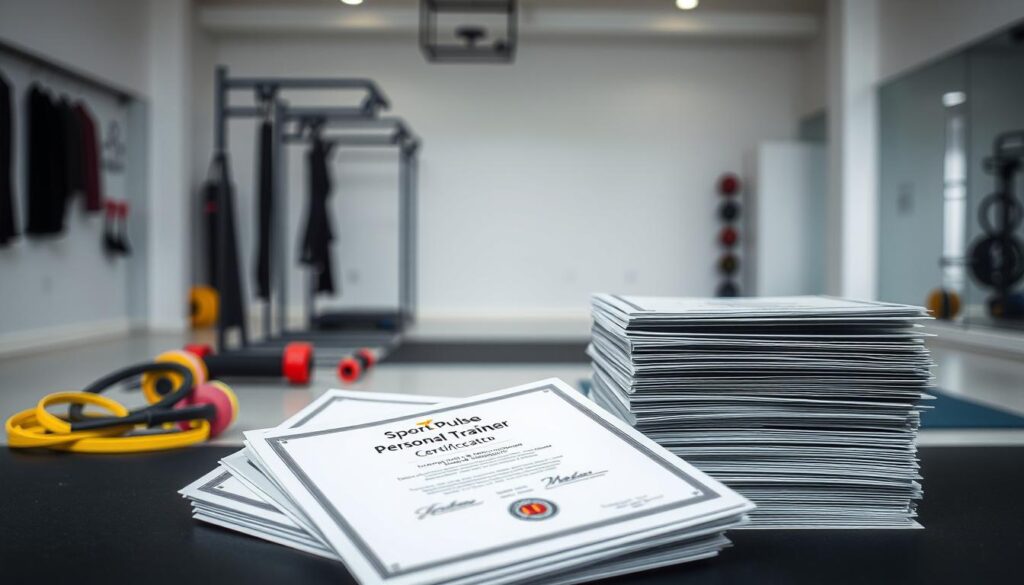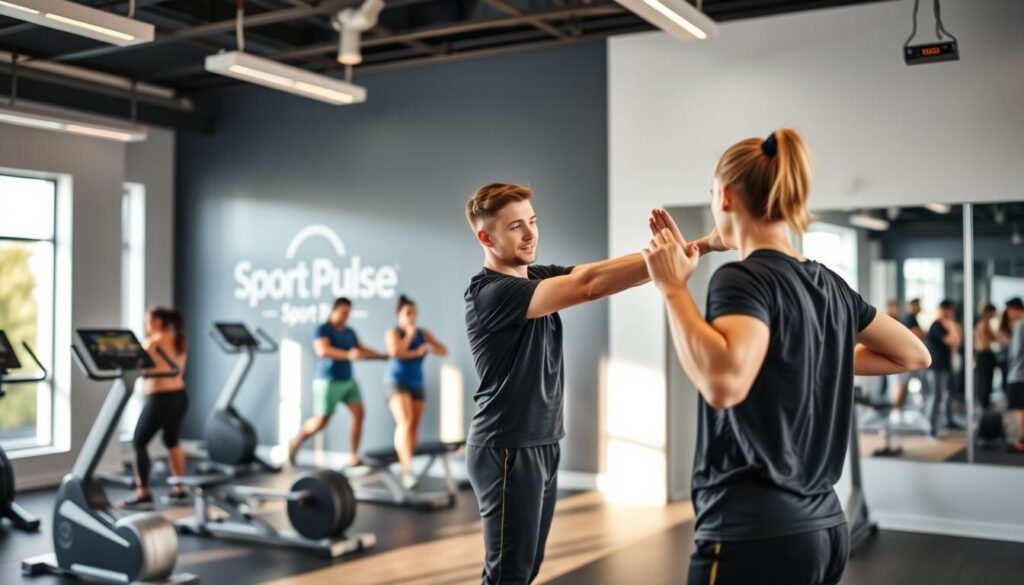The fitness industry is booming, with the global personal fitness trainer market projected to grow significantly, from $41.8 billion in 2023 to $65.5 billion by 2033. This surge underscores the increasing demand for personalized fitness guidance.
Finding the right personal trainer can be the difference between achieving your fitness goals and investing time and money in ineffective workouts. With so many trainers available, selecting the one that matches your needs, goals, and personality is crucial.
For those seeking personalized guidance on finding the right trainer, expert advice is available via WhatsApp at +44-7822010953.
Key Takeaways
- Understand the benefits of professional fitness guidance.
- Evaluate a trainer’s credentials and experience.
- Assess the personality fit with your trainer.
- Understand different pricing structures.
- Make an informed decision based on your specific needs.
Why Working With a Personal Trainer Can Transform Your Fitness Journey
Engaging a personal trainer can be the catalyst for achieving your fitness aspirations. With their expert guidance, you can experience a significant transformation in your fitness journey. A personal trainer provides more than just a workout plan; they offer a comprehensive approach to achieving your health and fitness goals.
Research-Backed Benefits of Professional Guidance
Studies have consistently shown that working with a personal trainer leads to better fitness outcomes compared to training alone. For instance, a 2014 study published in the Journal of Strength and Conditioning Research found that gym members who worked with a trainer saw greater improvements in lean body mass and overall fitness than those who didn’t.
Moreover, a 2020 study in Gerontology and Geriatric Medicine demonstrated that older veterans with various health conditions reduced their medication usage under the guidance of a personal trainer. These studies highlight the benefits of professional guidance in achieving health and fitness goals.
How Trainers Provide Accountability and Motivation
One of the key benefits of working with a trainer is the accountability they provide. Knowing that someone is expecting you at a session significantly increases your consistency in following the workout plan. Trainers also offer motivation and support, helping you push through challenging times and celebrate your successes.
Additionally, trainers can introduce you to a variety of exercise modalities, keeping your workout routine fresh and engaging. This not only helps in avoiding plateaus but also ensures that you continue to make progress towards your fitness goals.
Clarify Your Fitness Goals Before Your Search
Clarifying your fitness goals is a pivotal step in selecting the right personal trainer. Before beginning your search for a trainer, take time to clearly define what you want to achieve through your fitness journey.

Setting Specific, Measurable Objectives
Setting specific, measurable objectives helps you communicate your expectations to potential trainers and allows them to determine if they’re qualified to help you reach those goals. For instance, if your goal is weight loss, being realistic about your targets is crucial.
Determining What Type of Training Support You Need
Consider whether you need a trainer for a specific purpose, such as learning proper form for compound lifts, or for ongoing support and accountability throughout your workout program. Be honest about your current fitness level and any limitations or medical conditions that might affect your training program.
Assessing Your Schedule and Long-Term Commitment
Realistically assess how much time you can commit to training sessions each week and how this fits into your life schedule. Determine if you’re looking for short-term guidance to learn basics or a long-term partnership to help you progress through different fitness phases.
By understanding your own motivation patterns, you can find a trainer whose style complements your needs. If weight loss or muscle building is your primary goal, recognize that a trainer can help with the exercise component, but nutrition will play an equally if not more important role in your success.
Key Factors to Consider When Choosing a Personal Trainer
When embarking on a fitness journey, selecting the right personal trainer is a crucial decision that can significantly impact your progress. The ideal trainer can provide guidance, support, and motivation tailored to your specific needs and goals.
Essential Certifications and Educational Background
A trainer should be certified by a reputable organization recognized by the National Commission for Certifying Agencies (NCCA). This ensures that the certifications meet appropriate standards, giving you confidence in your trainer’s education. Reputable certifications include those from the National Academy of Sports Medicine, the American College of Sports Medicine, or the American Council on Exercise. When evaluating a trainer’s credentials, make sure to check for a strong educational background in exercise science, kinesiology, or related fields.
- Look for trainers certified through nationally recognized organizations like NASM, ACSM, ACE, or NSCA.
- Verify that the certifying organization is NCCA-recognized to ensure professional standards are met.
- A trainer’s educational background in relevant fields provides valuable foundational knowledge.
Specialty Certifications for Specific Goals
Beyond basic certifications, a trainer with specialty certifications in areas like nutrition, corrective exercise, or strength and conditioning can offer additional expertise relevant to your specific goals. These specialized credentials indicate a higher level of competence and a more tailored approach to your fitness needs.
Experience Working With Clients Like You
Experience is just as important as education when choosing a trainer. Ask about their experience working with clients similar to you in age, fitness level, and goals. A trainer with relevant experience can provide more effective guidance and support. Make sure to inquire about their approach to addressing specific health concerns or limitations you may have.

By considering these key factors, you can find a personal trainer who is well-equipped to help you achieve your fitness goals. Remember to ask about their experience working with clients like you and verify their certifications to ensure you’re in good hands.
What to Expect During Your Initial Consultation
The initial consultation with a personal trainer is a crucial step in determining whether they’re the right fit for your fitness goals. This meeting is an opportunity for both you and the trainer to assess whether you can work together effectively.

Questions a Good Trainer Should Ask You
A professional trainer will begin by asking detailed questions about your health history, previous exercise experience, and any physical limitations or injuries. They should also inquire about your goals, nutrition habits, sleep patterns, and lifestyle factors that might impact your fitness journey. For more information on what to expect during your first consultation, you can visit this resource.
Red Flags to Watch For During First Meetings
During your initial consultation, be wary of red flags such as a trainer who doesn’t perform an initial assessment, promises unrealistic results, or tries to sell you supplements. A good trainer will provide a comprehensive assessment and explain their training philosophy and methods.
Setting Clear Expectations From the Start
A quality trainer will outline how they’ll track your progress and make adjustments to your program as needed. They should also provide clear information about session structure, pricing, and cancellation policies. Make sure to listen carefully to their approach and ask questions if you’re unsure about any aspect.
By being informed and prepared, you can make sure that your initial consultation is productive and helps you find a trainer good fit for your needs.
Finding the Right Personality Fit for Long-Term Success
The success of your fitness journey with a personal trainer largely depends on finding the right personality fit. When you’re working closely with a trainer over an extended period, their energy, approach, and motivational style can significantly impact your progress and overall experience.
Different trainers have distinct ways of motivating their clients. Some are nurturing and encouraging, while others are more direct and challenging. Some take a more educational approach, explaining the rationale behind each exercise, while others focus on demonstration and hands-on guidance.

Matching Motivational Styles to Your Preferences
It’s essential to reflect on how you respond to different types of motivation. Do you thrive with positive reinforcement, or do you need someone who will push you harder when you want to give up? Some people work best with a coach who offers positive motivation, while others may need a more assertive approach. Understanding your motivational needs will help you find a trainer whose style complements yours.
- Consider whether you prefer a trainer who builds a friendly rapport or one who maintains a professional, focused relationship.
- Think about how you respond to different communication styles: Do you prefer detailed explanations or demonstrations?
Communication Styles That Keep You Engaged
Communication style is equally important when choosing a personal trainer. Some trainers are very detailed in their explanations, while others focus more on demonstration and less on verbal instruction. You need to consider what style keeps you engaged and motivated throughout your workouts.
Ask potential trainers how they typically motivate people who struggle with consistency or face challenges. Their answer will reveal much about their approach and whether it aligns with your needs and preferences.
By focusing on finding a trainer with a compatible personality and style, you can ensure a more productive and enjoyable fitness journey.
Understanding Personal Training Costs Across Different Settings
To budget effectively for personal training, one must first understand the pricing landscape. The cost of working with a personal trainer can vary significantly based on factors such as location, trainer experience, and training setting.
As of April 2024, the average North American trainer charges between $55-65 for an hour-long session. However, prices can fluctuate greatly depending on the gym or location. For instance, a session at an Equinox Gym in New York City can cost $100-$150+ per hour, not including the monthly membership fee. In contrast, a session at the YMCA in Indiana might cost between $45-$50 per hour.
Pricing and What’s Included in Gym-Based Training
Gym-based training typically involves both membership fees and personal training costs. The total monthly expense for twice-weekly sessions can range from $440 to $680 at standard gyms like LA Fitness or 24-Hour Fitness. Luxury fitness centers like Equinox or Lifetime Fitness can charge upwards of $830 to $1,000+ per month. When comparing costs, it’s essential to consider what’s included – some gyms offer additional perks like towel service, spa access, or group classes that add value beyond the training sessions.

In-Home and Online Training Options
In-home personal training eliminates the need for gym membership fees but typically costs more per session, ranging from $75 to $175, to account for the trainer’s travel time and convenience factor. On the other hand, online training options have expanded dramatically, offering various pricing models – from per-session video training to monthly coaching packages that include workout programming and nutrition guidance.
Determining Value Beyond the Hourly Rate
When evaluating the cost of a personal trainer, remember that you’re not just paying for their time during sessions but also for their expertise, education, program design skills, and accountability support between sessions. A more expensive trainer who helps you achieve results efficiently might provide better value than a cheaper option that takes longer to produce results.
Questions to Ask About Pricing and Packages
It’s crucial to ask detailed questions about pricing and packages. This includes inquiries about cancellation policies, session expiration dates, and whether packages can be shared with family members or friends. Many trainers offer package deals with discounted rates for purchasing multiple sessions, making regular training more affordable.
Conclusion: Making Your Final Decision and Taking Action
As you finalize your decision on a personal trainer, several factors come into play to ensure you’re making the right choice. When making your final decision, prioritize finding a trainer who understands your specific goals and has a proven track record of helping clients achieve similar results.
It’s also crucial to consider the personality fit between you and your trainer. The best coach for you is one who motivates you in a way that resonates with you and makes your workout sessions something you look forward to.
To ensure a good fit, consider starting with a trial session or short-term package. This allows you to assess whether the trainer is right for you. A great trainer will be willing to collaborate with you on program design, taking your feedback seriously and making adjustments as needed.
Remember, successful fitness journeys involve more than just exercise. Make sure your trainer addresses nutrition, recovery, sleep, and stress management as part of your overall program. Set clear expectations about communication between sessions, including availability for questions about workouts and nutrition advice.
For personalized guidance, you can reach out via WhatsApp at +44-7822010953. Trust the process and be patient; meaningful fitness transformations take time. A good trainer will help you celebrate small victories along the way to your larger goals.
Ultimately, a personal trainer is a guide and educator, aiming to empower you with the knowledge, skills, and confidence to maintain your fitness for life. As Misner said, “Real fitness is about living the life you deserve to live.” By choosing the right trainer and committing to your goals, you’re taking a significant step towards achieving lasting fitness.


